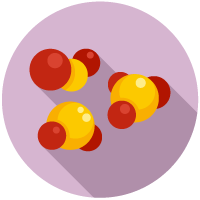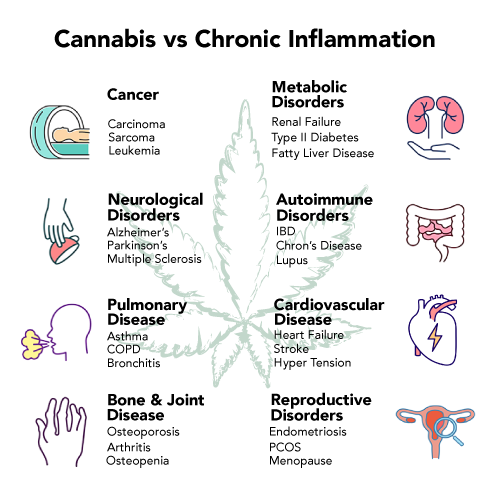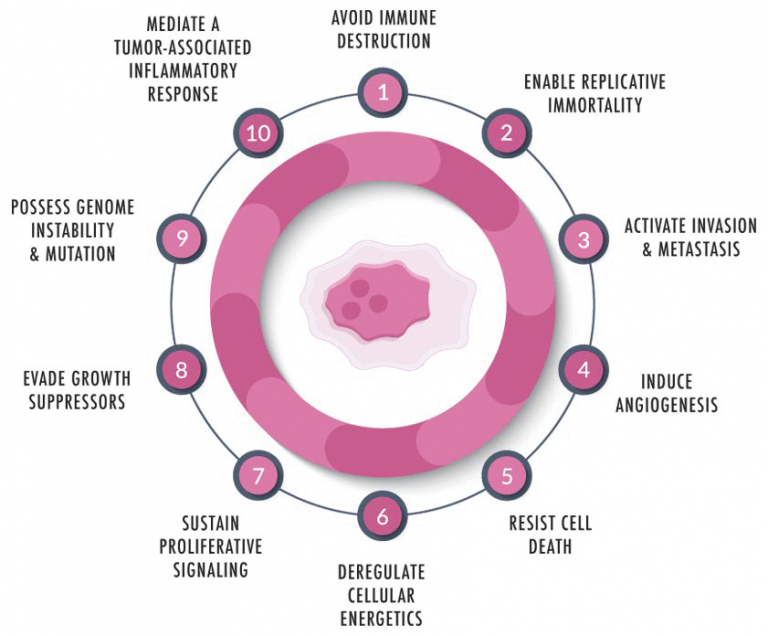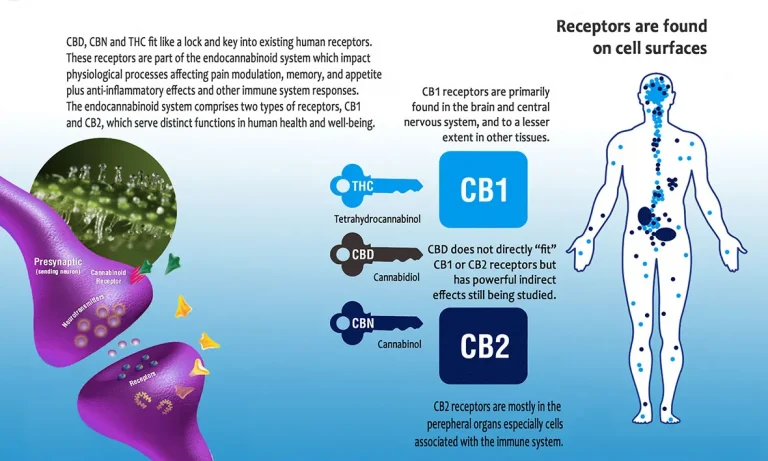Learn
Endocannabinoid System
Learn
Endocannabinoid
System
What is the Endocannabinoid System?

The endocannabinoid system (ECS) is an evolutionary balancing system of our biochemistry. The ECS is the master regulatory system that autoregulates all our 11 organ systems, immune system and other neurotransmitter signaling systems (feedback systems) to keep our bodies in homeostasis or balance.
Homeostasis means internal balance when conditions change externally. The physiological systems in our ‘smart body’ depend on the Endocannabinoid System to make constant adjustments to influence our sensory awareness, pain perception, appetite, digestion, mood, memory, and motor function, inflammation, immune function and tumor surveillance, fertility, reproduction, temperature, hormonal balance, bone formation, eye pressure, stress adaptation, sleep, endocrine function, neural development, and neuroprotection.
The 11 organ systems have direct roles in keeping our bodies in balance, however the ECS fine tunes and regulates the signals between cells and synapses to ensure proper communication to keep your body working optimally like a switchboard operator. Research into cannabis showed us that we have an endocannabinoid system, not because of the cannabis plant, but because we make molecules in our body very similar to the plant. We make internal endogenous cannabinoids, AEA and 2AG, while the cannabis plant makes phytocannabinoids such as THC and CBD.
The ECS monitors and adjusts the communication between all of our systems at the same time, the nervous and immune systems, tumor surveillance, bone strength, blood pressure, adrenals and hormones.
Cannabis causes its physiological effects in the body because it plugs into the cannabinoid receptors (CB1, CB2) in our body like a lock and key. Our body makes endogenous compounds called Anandamide and 2-AG, endocannabinoids that help regulate our 11 other body systems by providing a “Feedback Loop”. Endocannabinoids fine tune through retrograde signaling – ‘telling the body to turn something up or down’ as needed to keep the body in balance or at homeostasis.
The endocannabinoid system (ECS) affects human physiology with respect to how we: eat (appetite, nausea, digestion, and nutrient absorption), sleep (circadian rhythm, falling and staying asleep, dreaming), relax (calming anxious thoughts, reducing fight or flight, feeling grounded) , forget (trimming aversive memories, calming PTSD, letting go of fear), and protect (immune and tumor patrol and regulation). All mammals have an ECS that governs the body, making fine-tuning adjustments everywhere in the body. This is an evolutionary biological system that must function, or we die.
Keys, Locks & Enzymes.

Endocannabinoids (Keys)
The protein compounds that your own body makes endogenously are called Anandamide (AEA), & 2-AG. These cannabinoids ‘assist’ other neurotransmitter signaling systems such as dopamine and serotonin to do their jobs more effectively.
Endocannabinoids are created ‘on demand’ to direct communication within other messenger signaling systems to respond to stress. The internal endocannabinoids ( AEA & 2-AG) travel backwards, or retrograde, to correct imbalances between cells, synapses, and systems.

Receptors (Locks)
The locks where the (Endocannabinoids – keys) enter. Endocannabinoids (Keys – Anandamide and 2AG) activate these Receptors (Locks) named CB1 & CB2. Activating the receptors control many functions within the cell to restore balance.
These receptors are upregulated or increased when the body is in distress. With injury or illness, the body creates receptors to seek its own endocannabinoids to restore balance, auto correcting imbalance.

Enzymes (FAAH & MAGL)
ECS Example One
Fight or Flight Response

You perceive danger in the environment, the ON Switch activates the ECS to create endocannabinoids to provide messages to release adrenaline hormone, the ‘fight or flight’ response which starts a cascade of physiological responses in your various organ systems to keep you safe. When danger (or perceived danger) is over, the ECS activates the OFF Switch to turn off the adrenalin and return the body to a state of calm.
If you are low on your endogenous cannabinoids (not making enough of your own anandamide & 2AG ) you may not be able to turn off that switch. Without the ECS turning off the adrenaline, you will remain in chronic fight/flight/ stress, producing excess cortisol and hindering your body’s ability to go back to homeostasis. Without the proper messaging of the ECS, our body doesn’t have the tools necessary to function optimally or autocorrect.
Because phytocannabinoids from the Cannabis plant activate the same CB1 & CB2 receptors that your body normally would, supplementing with full spectrum cannabinoids may restore the performance of your endocannabinoid system, keeping your body in balance.


ECS Example Two
Inflammatory Response

If you fall and scrape your knee, the dirt germs start to invade. The ON switch activates the ECS to create endocannabinoids to provide messages to activate the body’s inflammatory response releasing cytokines to go to the area to fight infection and kill the germs. Once the germs are dead the body is ready to stop releasing pro-inflammatory cytokines and the OFF switch signals the ECS to create endocannabinoids to turn off the inflammatory response.
If you are low on your endocannabinoids, you may not be able to turn off the inflammation, and your body will continue to produce pro-inflammatory cytokines causing ongoing inflammation. Because phytocannabinoids from the Cannabis plant activate the same CB1 & CB2 receptors that your body normally would, supplementing with full spectrum cannabinoids may restore the performance of your endocannabinoid system, keeping your body in balance.
ECS Example Two
Cell Life Cycle Response

We are amazing human beings capable of reproducing cells in our bodies. About 330 billion cells are replaced daily, equivalent to about 1 percent of all our cells. All cells have a lifespan, and towards the end of the cell lifecycle they get a signal to replicate. The ON switch activates the ECS to create endocannabinoids to provide messages to replicate cells. Once replicated, the ECS activates messages to turn OFF the cell replication signaling.
If you are low on endogenous cannabinoids, replication signals may not turn off and get messages for the cells to keep replicating even when they don’t need to. This is a simple explanation for the mistakes made in over-replication of cancer cells that invade healthy tissues. Because phytocannabinoids from the Cannabis plant activate the same CB1 & CB2 receptors that your body normally would, supplementing with full spectrum cannabinoids may restore the performance of your endocannabinoid system, keeping your body in balance.

Cannabis plant cannabinoids, called phytocannabinoids like CBD and THC, mimic our own molecules, providing relief from distress as a supplement. Cannabinoids activate this network of receptors on cell membranes to restore balance at the cellular level and allow healing. Phytocannabinoids are about 10 times stronger than our own endocannabinoids, and last for several hours as opposed to the microseconds of life of Anandamide or 2-AG.
Phytocannabinoids such as the THC compound from Cannabis mimic the Endocannabinoids to fulfill the cell signaling duties that are needed to return the body to homeostasis.

As you can see, it is critical to keep our ECS running effectively to manage the health of all our 11 physiological systems. When the 3 components to our endocannabinoid system don’t work effectively, messages don’t get relayed, and the body malfunctions, hindering our ability to adapt to outside stressors.
Endocannabinoid system deficiency becomes a clinical syndrome when the body is unable to auto correct, and errors in signaling systems accumulate. Chronic pain conditions, fibromyalgia, irritable bowel syndrome, migraine, and other refractory conditions can be attributed to clinical ECS deficiency. Scientists at the National Institute of Health (NIH) stated in 2003 that the ECS is involved in all disease processes, and the ECS may be the most important system in our body because it regulates all our other organ systems and messenger signaling systems. It makes sense to learn to care for that system as a means of disease prevention, and to improve outcomes with other conventional therapies. Everything that we do or don’t do in our lives regarding health, wellness, and lifestyle affects the endocannabinoid system. Exercise, nutrition, meditation, connection, speaking up and setting boundaries, finding meaningful work, and pursuing joy supports a healthy ECS. Adding functional medicine tips, supplements, and working with integrative providers is important for a healthy ECS.
Cannabinoids found in the cannabis plant (CBD & THC) ‘mimic’ the endocannabinoids that your body makes (anandamide and 2AG). Supplementing with products such as LUMIR CBD can boost your own endocannabinoid system in many ways. If you are not making enough of your own anandamide you can supplement with CBD rich formulations to help you produce and circulate your own endocannabinoids through your body. Phytocannabinoids (cannabis molecules i.e. CBD & THC) become the ‘keys’ needed to bind with your receptors (locks) and correct imbalanced signals between your cells, nerves and systems. It is like getting a new set of keys, you can substitute for the ones you lost or just don’t make anymore.
